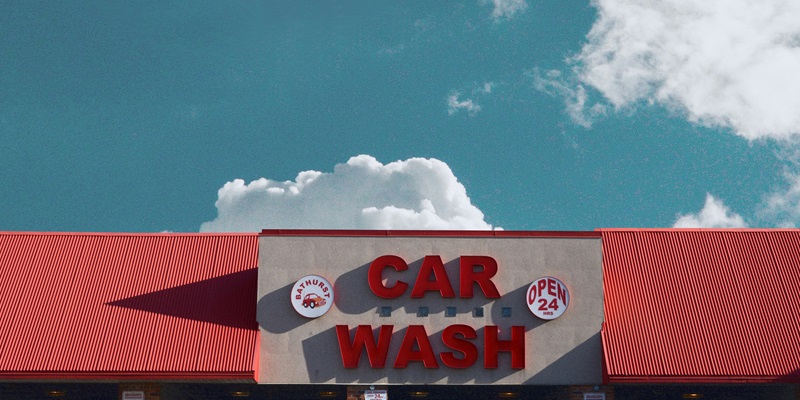The car wash sector is undergoing a significant transformation, bidding farewell to the days of predominantly manual labor and high resource consumption. Modern technologies are spearheading this change, enabling faster, more effective car washing services while simultaneously lessening their environmental impact. These advancements come in response to a shift in consumer expectations and an elevated focus on sustainability. As these priorities grow, the industry is propelled to innovate in order to remain relevant and competitive. This evolution is beneficial not just for the businesses that adapt but also for the environment, as the newer methods often consume less water and energy. As we move forward, the incorporation of eco-friendly practices and innovative technology in car washes is likely to become the standard, reflecting the broader trend towards environmentally conscious consumption and service provision.
The Rise of Touchless Car Wash Systems
Touchless car wash systems have become a beacon for those seeking a quick and careful clean for their vehicles. Employing high-pressure water jets and advanced detergents, these systems eliminate the need for physical contact with the car’s surface, significantly reducing the risk of scratches and marring. This technology is a leap forward in car care, allowing for automated operation and minimal human involvement.
These systems are also perfect for streamlining the car wash experience. Efficiency is improved as multiple vehicles can be serviced simultaneously without compromising cleanliness or safety, making touchless car washes a favorite among time-conscious consumers.
Conveyor Belt Advancements Streamlining Operations
Modern car washes are increasingly incorporating conveyor belt systems, revolutionizing the efficiency of their operations. These belts smoothly transport cars through the wash cycle, reducing manual labor and expediting the process. Particularly beneficial to busy car washes, conveyors bolster their capacity to manage a steady stream of customers without sacrificing the quality of the wash each vehicle receives.
Thanks to technological progress, these conveyor systems offer the added bonus of customizing washes to fit the specific needs of different vehicle sizes and types, enhancing customer satisfaction. By doing so, they provide a personalized touch to the car wash experience, which not only protects the vehicles but also caters to a diverse clientele. The implementation of such advanced conveyor belt systems indicates a significant leap toward streamlined, customer-friendly, and efficient car wash services that are designed to meet the demands of modern consumers.
Enhancing Visibility and Sustainability with LED Lighting
One of the more subtle yet impactful innovations in car wash technology is the integration of in-bay LED lighting. This energy-efficient lighting technology not only cuts down on electricity costs but also provides excellent illumination, enabling customers to inspect their freshly cleaned vehicles with ease.
The long lifespan and lower power requirements of LED lights align with the industry’s shift towards environmentally friendly practices. Upgrading to LED lighting is a strategic move to boost a car wash’s appeal while contributing positively to its carbon footprint reduction efforts.
Water Recycling: A Nod to Environmental Concerns
The global car wash industry is tackling water scarcity by incorporating advanced water recycling technologies. Such systems clean and reuse water, lowering the demand for fresh water and diminishing environmental impact. This sustainable practice complies with green regulations and appeals to environmentally conscious customers, enhancing the industry’s reputation.
By adopting these water-conserving measures, car washes are contributing to a more sustainable future, reflecting a growing trend towards eco-friendliness in business operations. The positive effects extend beyond compliance and consumer appeal, as they also lead to significant savings in water costs for car wash operators.
This shift towards water recycling in car washes highlights an important step in addressing the critical issue of water conservation. It demonstrates how industries can play a key role in promoting sustainability and environmental stewardship while still maintaining profitability and customer satisfaction.
Ride the Digital Wave with Mobile App Integration
With the digital age in full swing, mobile app integration has become a must-have for modern car wash services. These apps offer a range of conveniences, including the ability to schedule washes, select service packages, and complete payments—all from a smartphone.
This convenience is invaluable, drawing in tech-savvy customers while providing car wash operators with analytical insights into their clients’ preferences and behavior, leading to improved service offerings and customer satisfaction.
UV-C Sterilization: Adapting to Health and Hygiene Standards
In the post-COVID era, car washes are embracing UV-C sterilization to ensure car interiors are not just clean, but also sanitized. This technology, hitherto utilized in medical spheres, is effective in neutralizing harmful microorganisms and is now enhancing the automotive cleaning industry’s commitment to health. By integrating UV-C sterilization, car wash providers assure customers of the utmost care taken for their safety, thereby cementing their role as leaders in the industry who prioritize customer health. This proactive approach in adopting advanced sanitation methods showcases the sector’s adaptability and customer-centric mindset. The move not only underscores the importance of hygiene in the contemporary world but also reflects a paradigm shift where customer well-being is paramount.
Environmentally Friendly Cleaning Agents and Innovative Drying Systems
The automotive care industry is embracing environmentally responsible cleaning solutions, mindful of the impact on the planet. These eco-friendly chemicals are not just gentle on the ecosystem due to their biodegradability, but they also deliver the pristine results expected by professionals. This shift is a testament to the industry’s commitment to merging high-quality cleaning with environmental ethics.
As part of the drive for perfection, innovative drying technologies are being adopted. These systems utilize powerful air blowers and soft materials that are tough on moisture but kind to surfaces, ensuring vehicles dry quickly and thoroughly. This method is critical in preventing unsightly water spots and their associated damage, thus maintaining the vehicle’s immaculate appearance. Together, these advancements highlight a significant move towards sustainable practices without compromising cleaning excellence.

